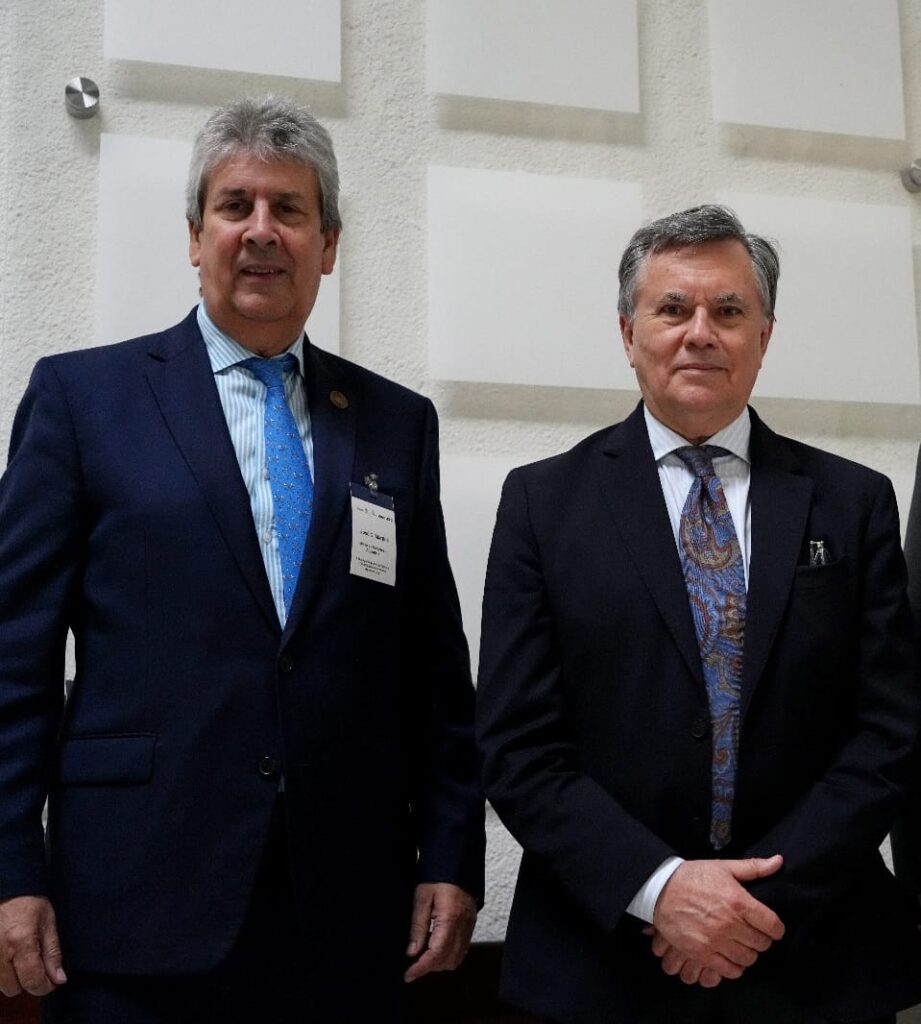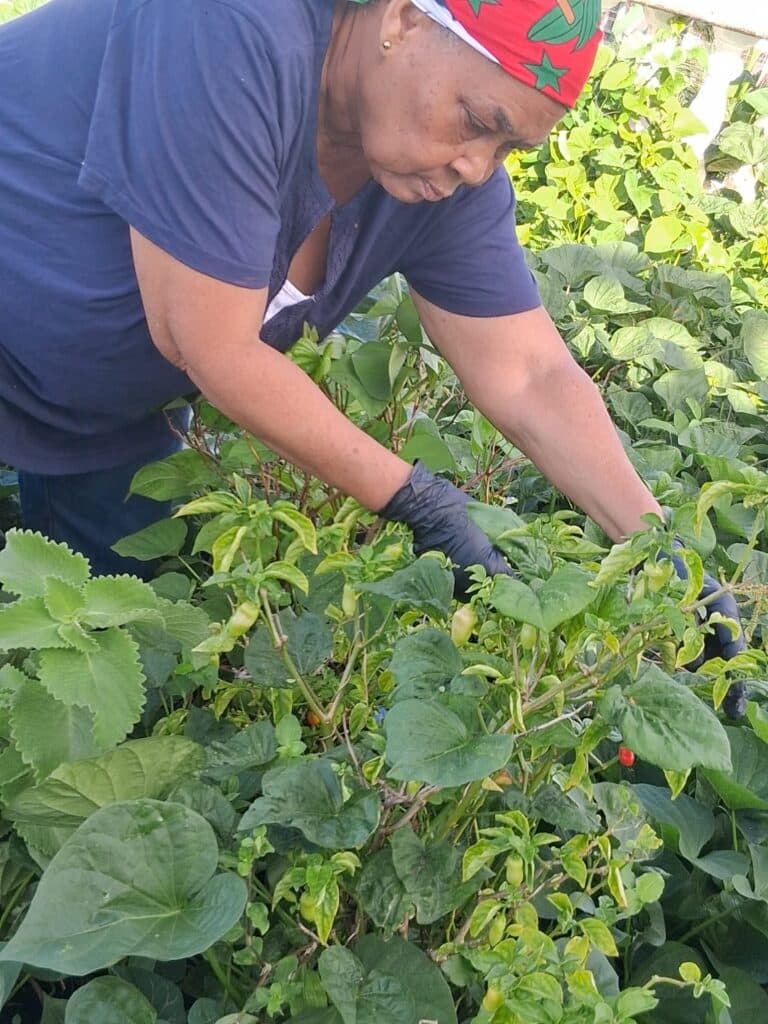
San José, 31 March 2025 (IICA) – The Buenos Aires Grain Exchange and the Inter-American Institute for Cooperation on Agriculture (IICA), two institutions with a history of collaboration, have outlined a series of topics to further expand their joint efforts, aiming to strengthen small farmers and promote rural retention.
José Martins, President of the Buenos Aires Grain Exchange—the oldest business entity in Argentina, founded in 1854—visited IICA’s headquarters to take part in the Second Regional Dialogue on Science, Technology, and Innovation in Agri-Food Systems in Latin America and the Caribbean. The event brought together representatives from the fields of agricultural science and technology across the region.
During the occasion, the Buenos Aires Grain Exchange’s brand was added to the IICA Friends panel, which adorns one of the headquarters’ walls with the names of allied public and private institutions.
Among them are universities, research centers, financial institutions such as CAF–Development Bank of Latin America and the Caribbean, entities like the World Food Prize Foundation, the Argentine Association of No-till Farmers (AAPRESID), the Alliance for a Green Revolution in Africa (AGRA), and private sector companies such as Bayer, Syngenta, and PepsiCo.
The Buenos Aires Grain Exchange and IICA have been developing four areas of collaboration focused on knowledge exchange, sharing experiences, and generating data and indicators that support evidence-based policymaking and decision-making processes.
During a meeting with IICA Director General Manuel Otero, Martins noted that he found in the hemispheric organization “an institution open to public-private collaboration, which is the only way to address today’s agricultural challenges. These challenges include a growing population, an expanding middle class with increasing consumption, and economically powerful countries seeking to change their eating habits. At the Buenos Aires Grain Exchange, we work daily with producers, exporters, grain handlers, and industrialists, which gives us firsthand insight into what is happening on the ground, allowing us to exchange knowledge with IICA’s vast expertise.”
Otero emphasized that the strategic alliance between the two institutions can only deepen over time, adding that both share a commitment to promoting a smooth, rules-based international trade of food products: “We understand that trade is a driving force in the sector, contributing to food security. We must recognize that our region has a surplus, meaning we must both feed our own populations and engage in international trade. In this context, traceability and strategic market analysis are fundamental,” he stated.
Financing for producers
The President of the Argentine business institution also stressed the importance of communication as a shared area of focus. “The agricultural sector,” he said, “must learn to communicate with citizens who do not fully understand what the agri-food industry is. We have failed to explain that; the public must know that agriculture plays a role in breakfast, lunch, dinner, or even clothing. And those who lack scientific rigor but seek to harm a sector that provides food security, generates wealth, and sustains rural communities often prevail in public discourse.”
“A defining feature that unites the Buenos Aires Grain Exchange and IICA is that we are both open-door institutions. At IICA, we will welcome 25,000 visitors this year, most of them young people, to instill in them the idea that agriculture is not only the present but also the future—a future that must be built,” Otero remarked.
Founded a year after the enactment of Argentina’s National Constitution, the Buenos Aires Grain Exchange includes 67 associations spanning the entire agricultural value chain among its members. Its primary mission is to support the development of the agri-food economy in both domestic and international markets through public policies, value addition, environmental stewardship, and technological advancement.
More information:
Institutional Communication Division.
comunicacion.institucional@iica.int











